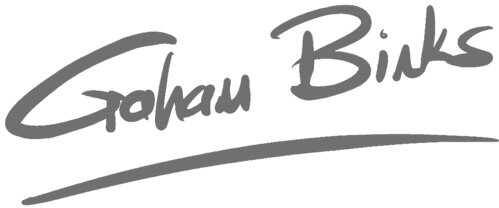The best skill you can master
/How do you know when you are a good collaborator? And how can you get better?
One of the great pleasures of my career has been to contribute to thousands of collaborations - efforts where we've pulled together teams of experts to solve problems large and small. I've experimented with many practices. Some worked and some didn't, but that's how you learn, right?
Here are five things I've learned that make the difference between great and not-so-great collaborations.
Have a coach. There's a buzz in team sports that you don't get in solo sports ( even golfers and skiers have their coaches). Working on a great collaboration is no different, but many business teams skip the coach role, the individual that trains the team in HOW to play. I’ve seen teams double their previous productivity and impact with good coaching.
Distinguish Collaborations from Committees. Collaborations are teams with complementary skills, formed to design a solution to address a specific challenge. Committees are review groups made up of complementary perspectives, and formed to make decisions and compromises. Don't confuse the two.
Pick the right problem. Spend time at the outset for the team to identify the real problem to be solved. Don't assume this will be the challenge that is originally presented - that's often (usually!) just a symptom. And be ready for the problem to morph as the work progresses.
Expect Expertise to Shift. A team can start with just two members and add expertise as the work evolves ( but be cautious about teams with more than seven members). Pay particular attention to ensuring the right skills are applied. If you don't have all the skills in-house, be open to using outside expertise, even if it's only for short time or a second opinion. Done right, this always pays off.
Pick the best Domain. Most business-changing opportunities will span organizations. If you don't involve Suppliers, Customers or both, in addition to all impacted parts of your business, you'll likely just move the problem around. For instance, cutting corners on product quality to hit a deadline or meet a revenue target will place an extra burden on support and service.
Rate Your Collaborations
Consider 2-3 teams that are collaborating in your business today. Pick a mix of completed and ongoing initiatives so you can look back on outcomes:
Did these teams produce the results you had hoped for in the time expected? Did they have a coach to help them with their practices?
How many of these groups were formed with complementary expertise ( as opposed to opinions)?
Did each group change members in the course of the work? Were new members added ( or at least consulted) as new expertise needs arose? Did members step back when issues are closed?
Did all members have an opportunity to provide feedback on results and approach? What do they say?
Were the original problems always resolved or did they ever re-surface? Did issues pop up elsewhere in the organization as a result of the team's solution?
Is collaboration a big deal for you? If so, I look forward to seeing your results. Send your thoughts to graham@primeFusion.ca and we can spend 15 minutes on the phone to discuss.

